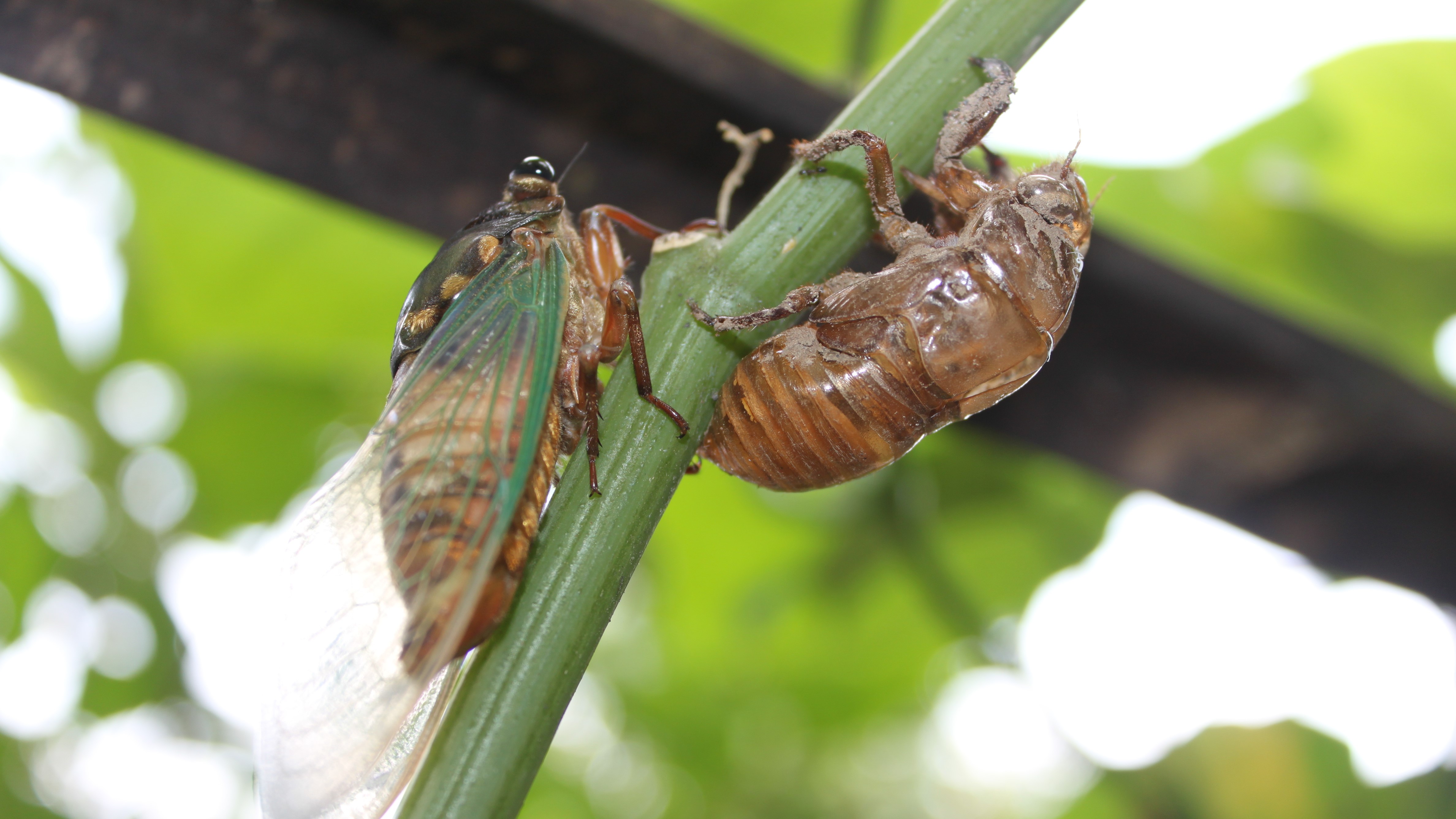
When a giant swarm of cicadas engulfs much of the US this spring, those wildlife enthusiasts who don't run for cover will have something new to observe – scientists have discovered that these insects urinate in surprisingly forceful jets.
Periodic cicadas – winged insects best known for burrowing under the ground after hatching for periods of 13 or 17 years, then emerging with a near-deafening buzzing sound – are famously difficult to observe in the field. However, Georgia Tech researchers recently got lucky on a field trip to Peru and discovered that "seeing a cicada pee is an event" according to a research report.
Prior to the research trip, scientists had only been able to observe cicadas urinating on video, which you can watch below. Cicadas feed on xylem sap in large amounts of up to 300 times their own body weight each day, so it's no surprise they'll need to go. But unlike other insects, which urinate in droplets due to anatomical necessity and because it uses less energy, the researchers discovered cicadas shoot out stream jets of urine, just like large mammals. According to a report in The New York Times, they can shoot urine at a rate of about 10 feet per second.
Cicadas' ability to pee in streams is thought to be down to the species' larger size – they can grow up to two inches long and have a wing span similar to that of a hummingbird. Regardless of the cause, hikers might want to think twice about lingering for too long under a buzzing tree this spring when the insects emerge.
Two broods of cicadas are expected to emerge in mid-May, or when soil temperatures reach 64°F, covering a geographical region that encompasses most of the midwest and southeastern states. The insects will be drinking sap and mating for four to six weeks before the adults die and their newly hatched young head back underground for the foreseeable future. Their incredible chorus comes mostly from the males as they try to attract mates, and the entire spectacle is a rare and intriguing natural event.
Cicadas do not pose any risk to humans or plants, though you might want to wear some ear plugs if you like to sleep in and, apparently, a waterproof jacket for walking under the trees.







